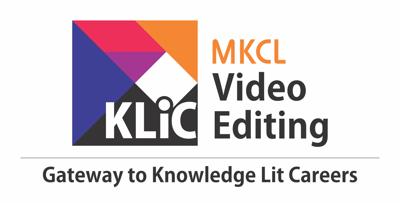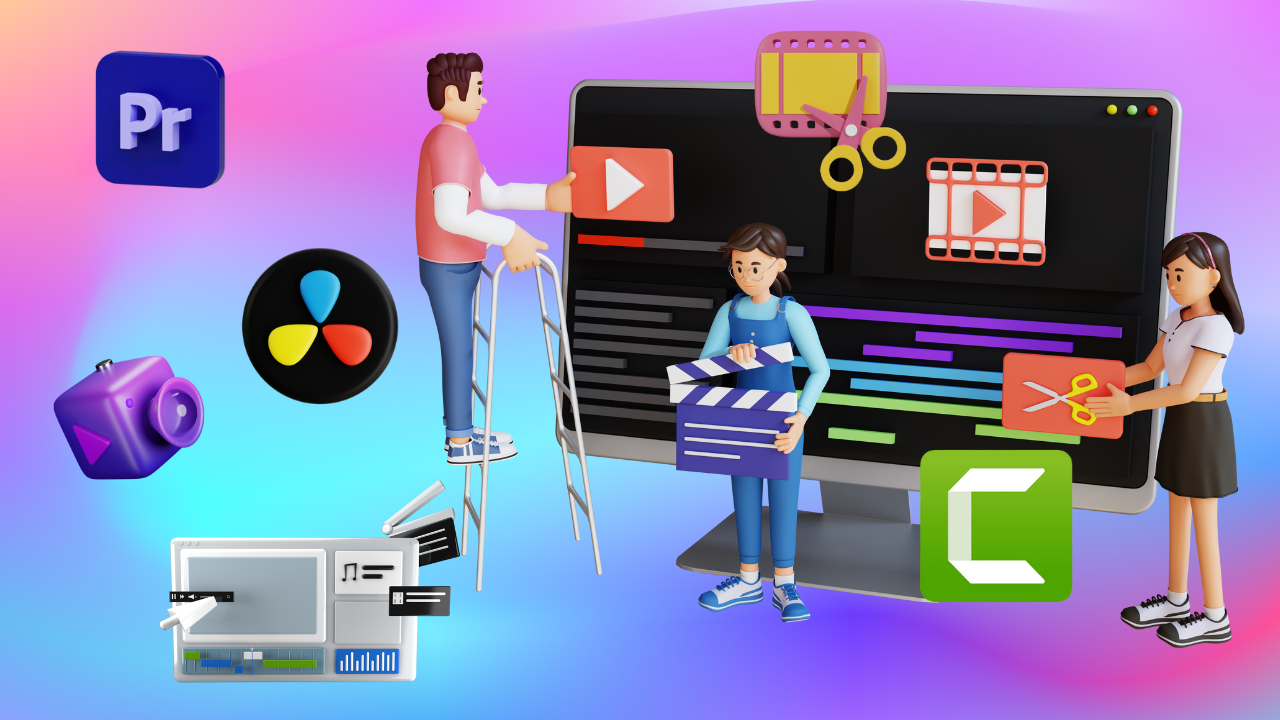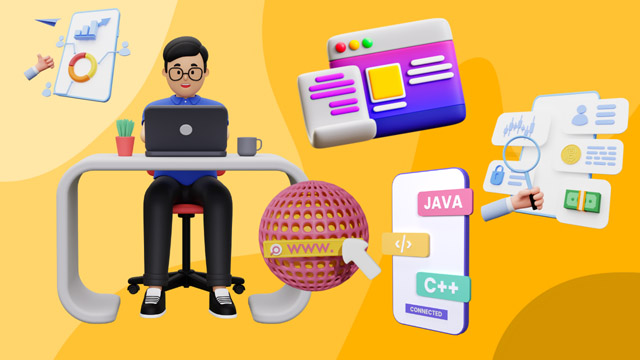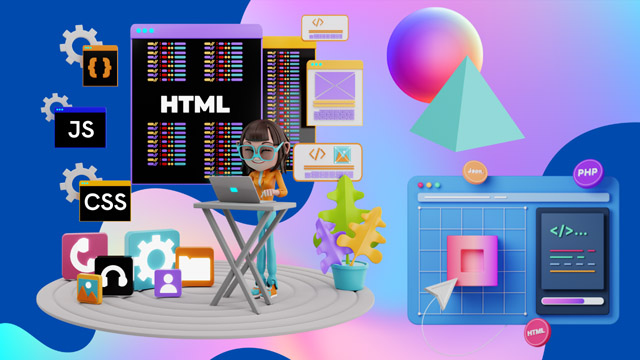Video editing is a process of modifying or rearranging the segments of video from one or more video tapes to create a final piece of video. It also includes editing of soundtracks, video and film, Applying colour correction, filters and other enhancements and creating transitions between clips.
Course Objectives: In this course, you will learn to:
- Identify the basic components of a video and types of cameras used
- Classify various video formats and shooting modes
- Explain the purpose and necessity of video editing
- Compare the features and functionalities of different video editing tools
- Identify the career opportunities available in video editing
- Differentiate between roles and responsibilities in various video editing domains
- Demonstrate basic video editing operations using Adobe Premiere Pro
- Demonstrate the use of selection and editing tools in Adobe Premiere Pro
- Organize and modify video clips on the timelines
- Recognize different types of audio tracks used in video editing to create cohesive content
- Demonstrate the application of color enhancement effects
- Operate advanced features in video editing software to apply motion effects
- Identify and compare different video codecs and formats
- Compare editing styles across different video genres
- Summarize best practices in time management for video editors
- Define the fundamentals of creative elements in video editing, including the role of graphics, titles, and lower thirds
- Identify the significance of well-designed elements and their impact on audience engagement in video editing
- Organize the process of importing and organizing media, camera logs, and data transfer for efficient video editing workflow
- Summarize the history of film editing and its evolution in visual storytelling
- Compare and contrast genre-specific editing techniques for documentaries, dramas, and comedies
- Report on the importance of pacing, rhythm, and storytelling arcs in video editing for effective narrative flow
- Categorize different techniques for creating visually appealing graphics, titles, and lower thirds in video editing
- Differentiate between basic and advanced color grading techniques and their effects on video aesthetics
- Predict the outcomes of motion tracking and compositing effects on video editing projects
- Examine the process of time remapping and its applications in creating dynamic visual effects
- Classify various blend modes and transitions used in video editing for enhancing visual impact
- Explain ethical considerations in video editing, including file management, rendering, and metadata handling
- Define the core functionalities and applications of Camtasia for video editing
- Demonstrate setting up projects, importing files, and creating motion banners in Camtasia
- Organize and manage files efficiently within Camtasia's environment
- Recognize the benefits of using collaborative tools in video editing projects
- Operate Camtasia for effective screen recording and integrate these recordings into projects
- Examine advanced editing techniques and the importance of version control in Camtasia
- Compare Camtasia's features with DaVinci Resolve to understand their distinct applications
- Identify and apply intermediate editing skills and audio mixing techniques in DaVinci Resolve
- Categorize color grading and green screen processes in DaVinci Resolve for enhanced visual storytelling
- Construct compelling motion graphics and visual effects using DaVinci Resolve's Fusion
- Summarize ethical practices in video editing, focusing on copyright and intellectual property rights
- Explain the concept of video optimization and its impact on the viewing experience
- Compare different video codecs and formats to identify the balance between quality and file size
- Create engaging thumbnails and categorize the importance of metadata for video discoverability
- Apply SEO strategies, utilizing keywords and descriptions to enhance video visibility.
- Assess the effectiveness of using various social media platforms for video promotion and audience engagement
- Summarize the methods and considerations of video monetization, focusing on copyright and licensing
- Identify how Content ID works and its role in managing copyright for online videos
- Develop an online presence strategy that ensures consistency and effectiveness across platforms
- Explore various career opportunities in video editing, reflecting on industry demand and personal interest
- Organize a professional portfolio that effectively showcases one's strengths and style in video editing
- Summarize foster collaborations and understand its impact on career progression
- Examine continuous learning to enhance skills and stay current with video editing trends and technologies



